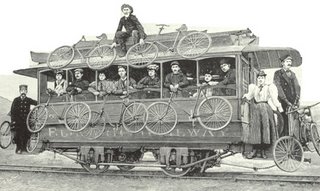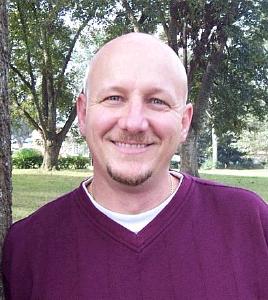
Bikes are not as practical for long distance trips (although the definition of "long distance" changes once you switch from driving to cycling as your main transportation mode). In these cases it makes sense to have a good public transit system.
The good news is that with all the available room left by today's car infrastructure, we would have plenty of space to create dedicated transit lines through the city so that bicycles and buses or trolley cars can coexist safely and peacefully. Since their range and uses are distinct, transit and bikes compliment each other whereas transit and cars currently compete for space and for users.
The integration of bicyles and long-distance transit are even more compelling. Today, many commuters complain that train service is expensive and infrequent, but trains could partner with bicycles to their mutual benefit.
The catchment area for a bicycle-oriented train station would increase dramatically over mere pedestrian access. The station would no longer require a huge parking lot to accomodate commuters arriving by car, since bicycles take up so much less room. Each station could run very productively and frequently, with trains at frequent intervals.
Source: "Can the Bicycle Save Civilization?" by Ryan McGreal


